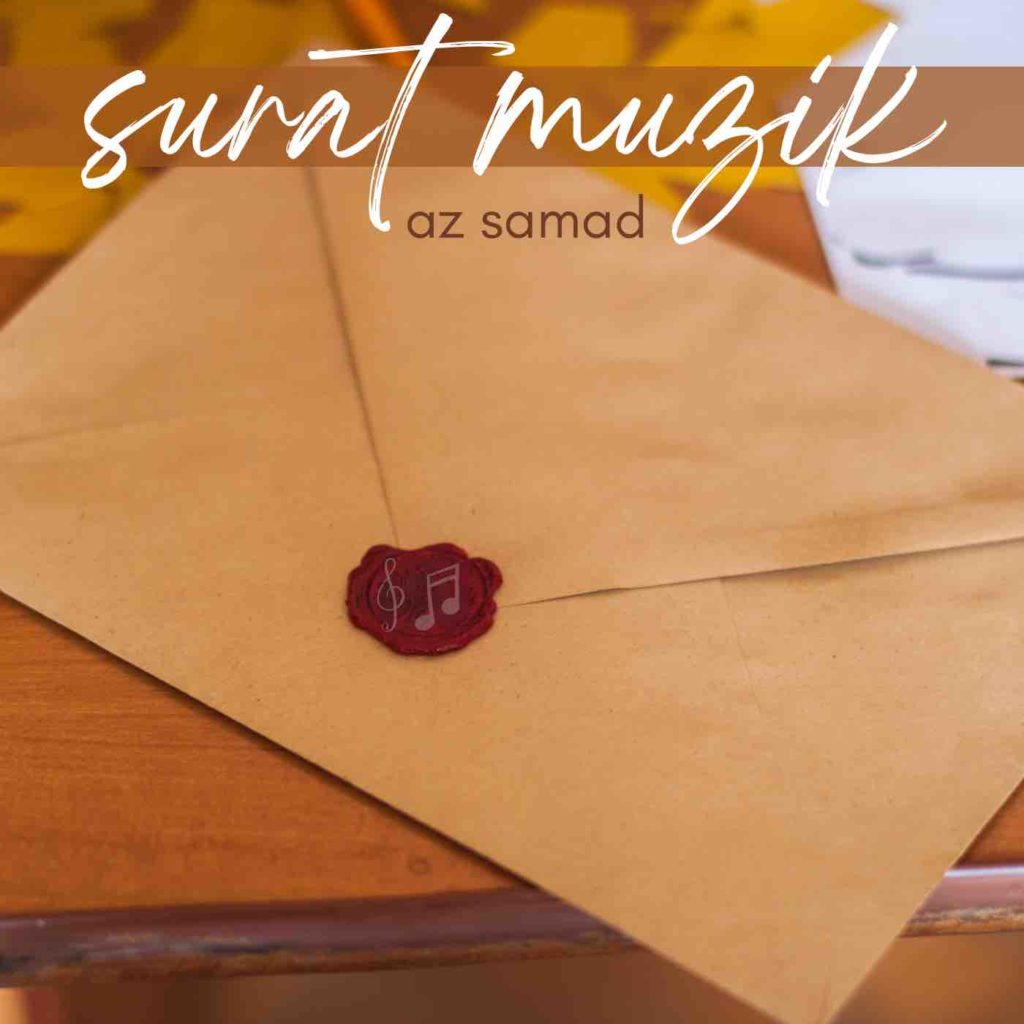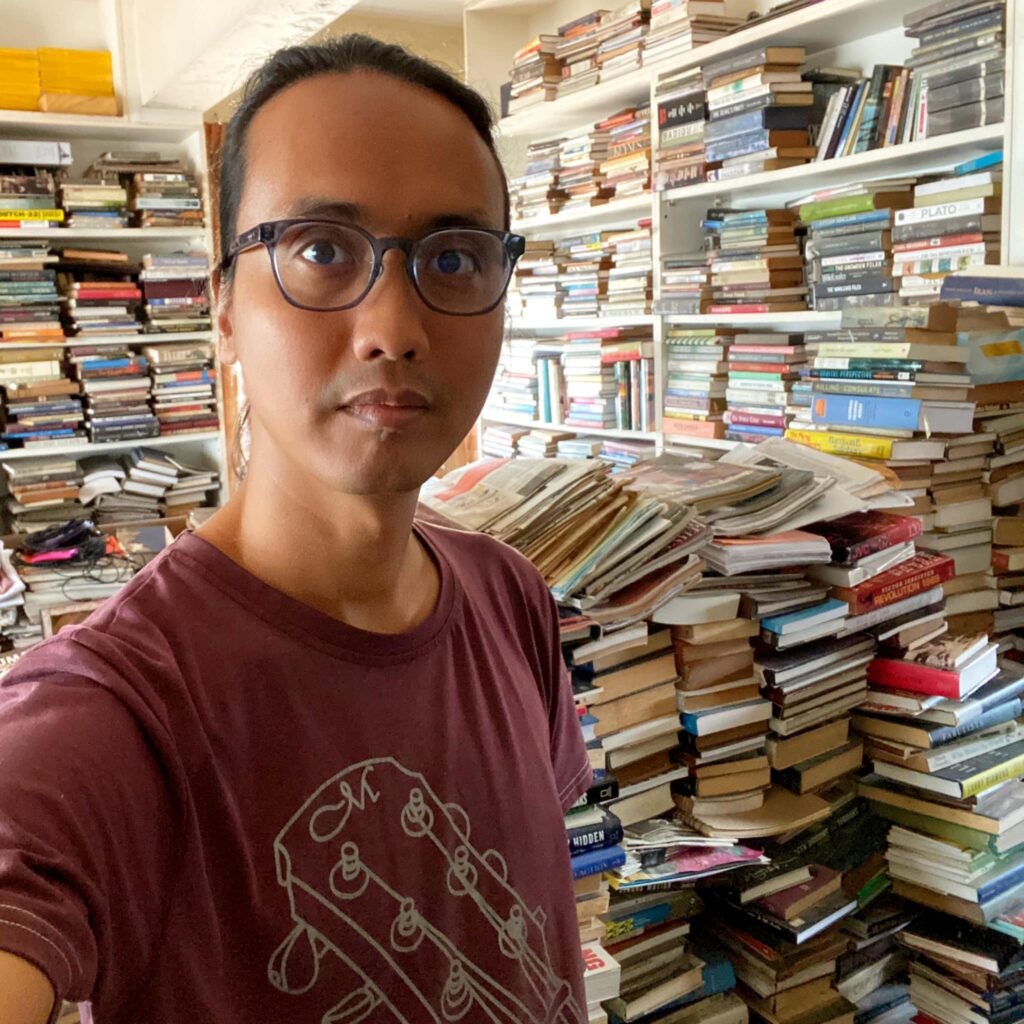
Today I want to talk about something that has greatly impacted my life as a musician—reading. I believe that reading books is not only enjoyable but also essential for musicians.
In this blog post, I’ll share my reading habits, the ways it has influenced me professionally, and why I think every musician should embrace reading.
Diverse Reading Habits:
I love reading all sorts of books! From business books by famous authors like Seth Godin to music books covering jazz guitar techniques and autobiographies, I enjoy exploring a wide range of topics.
Creativity books by authors like Derek Sivers and Malcolm Gladwell, marketing and sales books by Dan Kennedy and Russell Brunson, and negotiation and persuasion books like “Never Split the Difference” by Chris Voss or “Influence” by Robert Cialdini are some of my favorites.
In fiction, I find great pleasure in reading works by authors like JD Salinger, Neil Gaiman, and Chuck Palahniuk.
I read before going to bed, while waiting for rehearsals or sessions, during meal times, and whenever I have free moments.
Sometimes, I even read books for the purpose of writing reviews. Growing up in an environment surrounded by books, with my father being a renowned Malaysian author, reading has always been a major part of my life.
Impact on My Professional Life:
Reading has deeply influenced how I connect with people in my professional life.
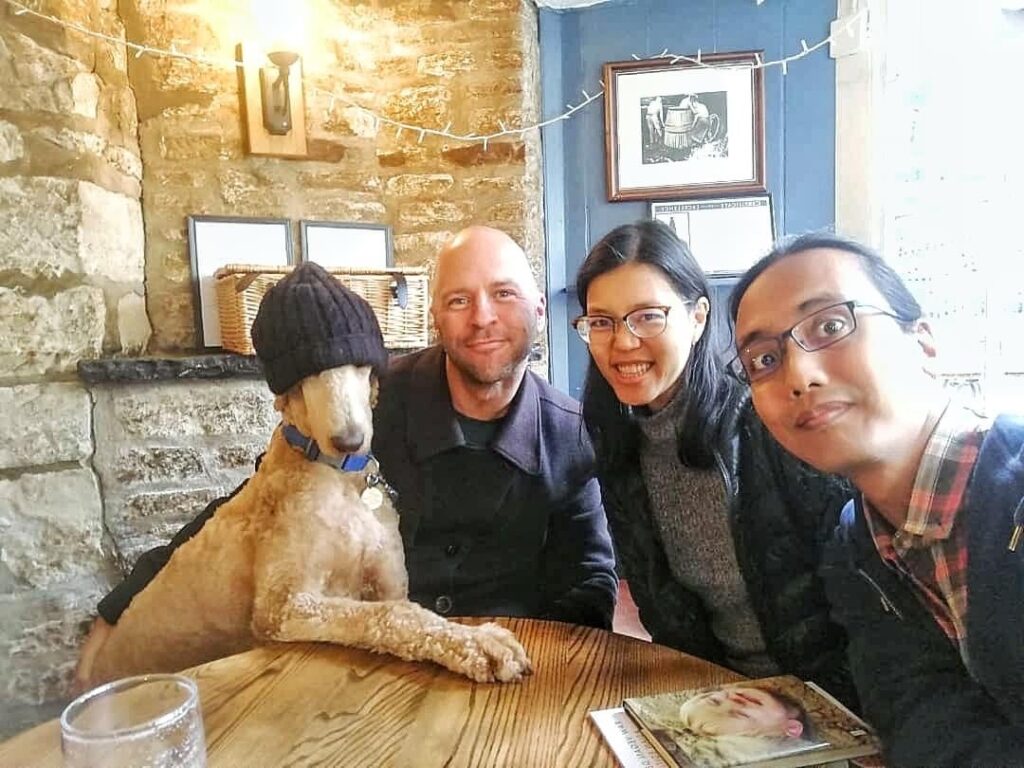
Let me share a story: Derek Sivers, the founder of CD Baby, wrote a book called “Anything You Want.” At the end of the book, he invited readers to connect with him via email. I took the chance and sent him an email, which eventually led to meeting him in Singapore and later in Oxford, England.
These moments of connection, conversations, and shared experiences with someone I admired shaped me deeply.
Connecting with authors through my reviews has also helped me build friendships and establish relationships with them. For example, I connected with amazing musicians such as Noel Johnston through his books, and we now geek out and share guitar & music memes like all the time. He also sent me three of his books, which I appreciate deeply!
Writing about books and sharing my thoughts has also helped me build a stronger reputation over time. In fact, an author discovered me through a video I posted years ago, leading to a review request that aligned with their current work. It’s amazing how reading and sharing your thoughts can open doors and create opportunities.
Recommended Books for Musicians:
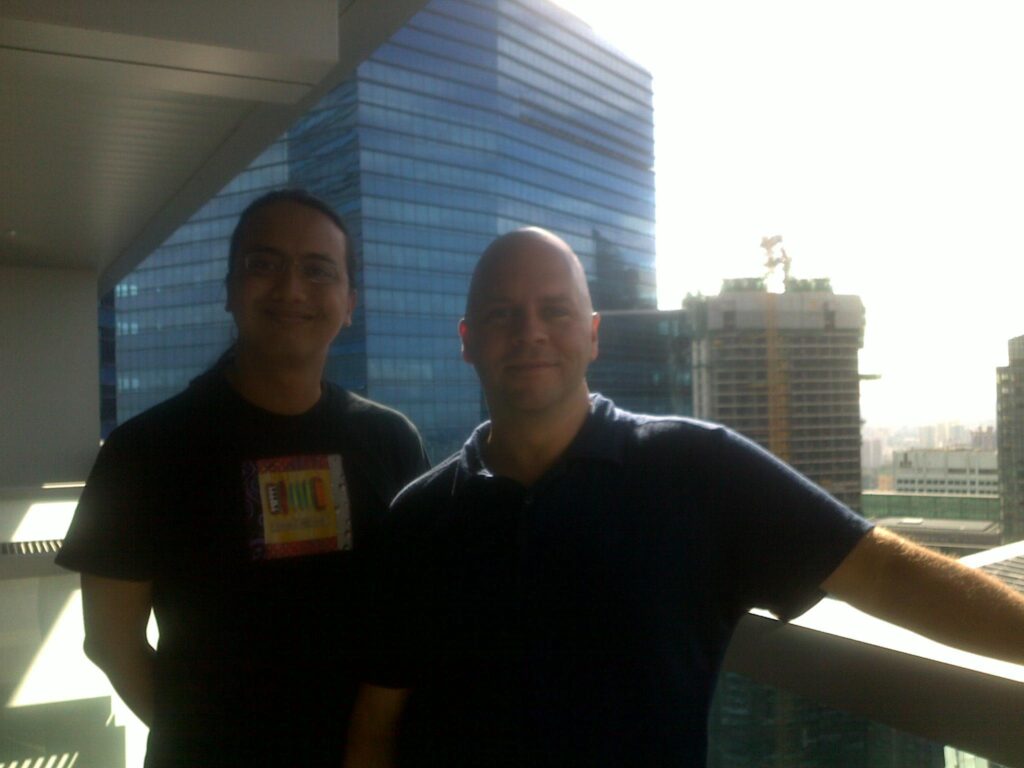
If I had to recommend two or three books to fellow musicians, especially beginners, I would strongly suggest Derek Sivers’ books: “Anything You Want” and “Your Music and People.” These books provide valuable insights into the music industry and the art of connecting with people. Another book I highly recommend, especially for guitarists, is “Zen Guitar” by Philip Toshio Sudo. This book influenced me greatly when I started playing the guitar and continues to be a source of inspiration for me.
Books I Haven’t Finished:
Now, let’s talk about books I started but couldn’t finish. One such book is “Charlie Munger’s Almanac” by Charlie Munger, a friend of Warren Buffett. Although I enjoyed it, I haven’t had the chance to complete it yet. However, I plan to revisit it in the future.
Choosing What to Read:
Many people wonder how I decide what to read. Instead of referring to bestseller lists or book club recommendations, I find the most interesting books come from recommendations by people I respect.
There are different types of books out there. Some are written as authority vehicles to establish the author’s expertise, while others are academic books designed to advance academic careers.
I’m particularly drawn to books that share stories, insights, and experiences. Those are the ones that resonate with me and have the most impact. It’s the reason I love books by Derek Sivers, Seth Godin and Philip Toshio Sudo.
Embracing Reading as a Musician:
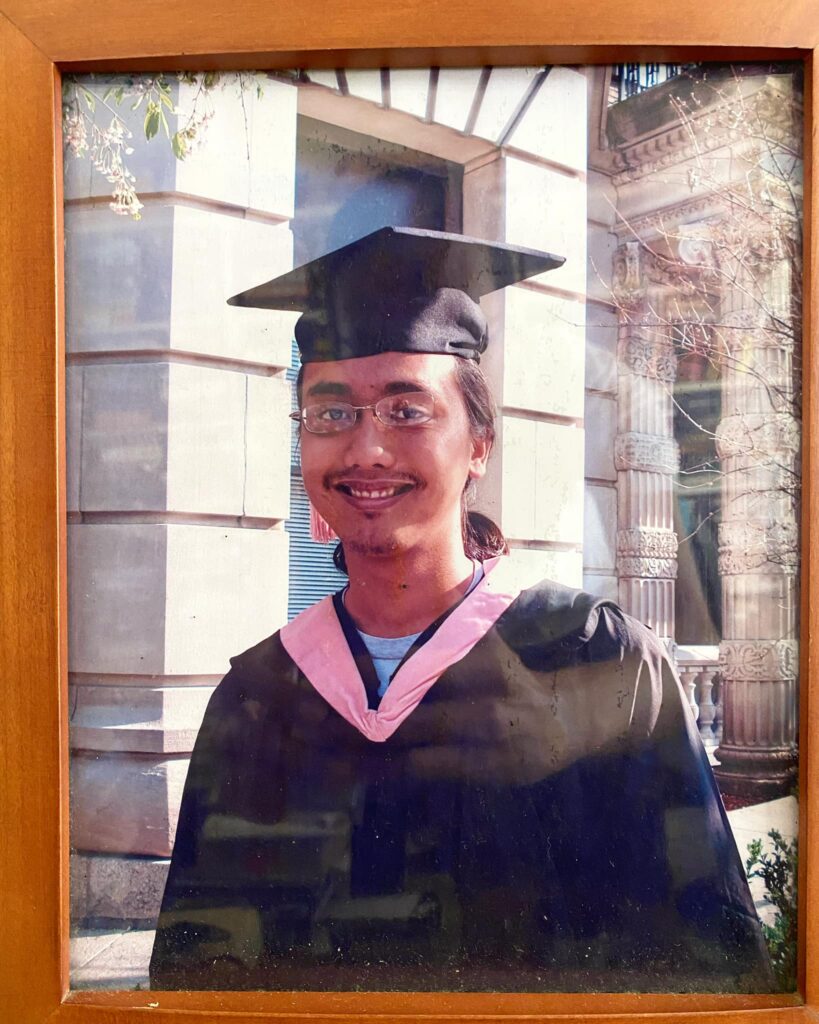
Many students associate reading with a chore to pass exams, but it doesn’t have to be that way. Academic books can often be dry and structured, focused on proving research and adhering to formatting guidelines.
However, reading is a nonlinear journey that allows you to feed your mind with classic, timeless ideas. To get started, I suggest reading what you genuinely enjoy. Whether it’s comic books, shorter books, or even listening to audiobooks, it’s important to engage with books that spark your interest.
Also, you don’t have to finish every book you start—feel free to start and stop, revisit favorites, and take your time. As a university student, it’s never too late to start enjoying the benefits of reading.
Quality Information and Knowledge:
In today’s digital age, it’s easy to assume that all the information we need is readily available online. However, it’s crucial to remember that not everything online is reliable. Platforms like ChatGPT or search engine results can be manipulated and may lack accuracy.
Books, on the other hand, offer a higher chance of accessing better quality information. They provide a deeper understanding and can present ideas not found in popular online sources. Just because something is popular doesn’t guarantee its quality. Books offer a more comprehensive and (potentially) a more reliable source of knowledge.
Networking and Original Thinking:
Reading not only provides better information but also offers networking opportunities. Through books, I have connected with authors like Derek Sivers, which led to meaningful conversations and shared experiences.
Building relationships with authors and fellow readers can open doors and create valuable connections in the music industry. Additionally, reading quality content enhances your ability to think critically and develop original thoughts. By exposing yourself to diverse perspectives from different industries, you can find inspiration that goes beyond the confines of the music world.
Transferring Ideas to Musical Creativity:
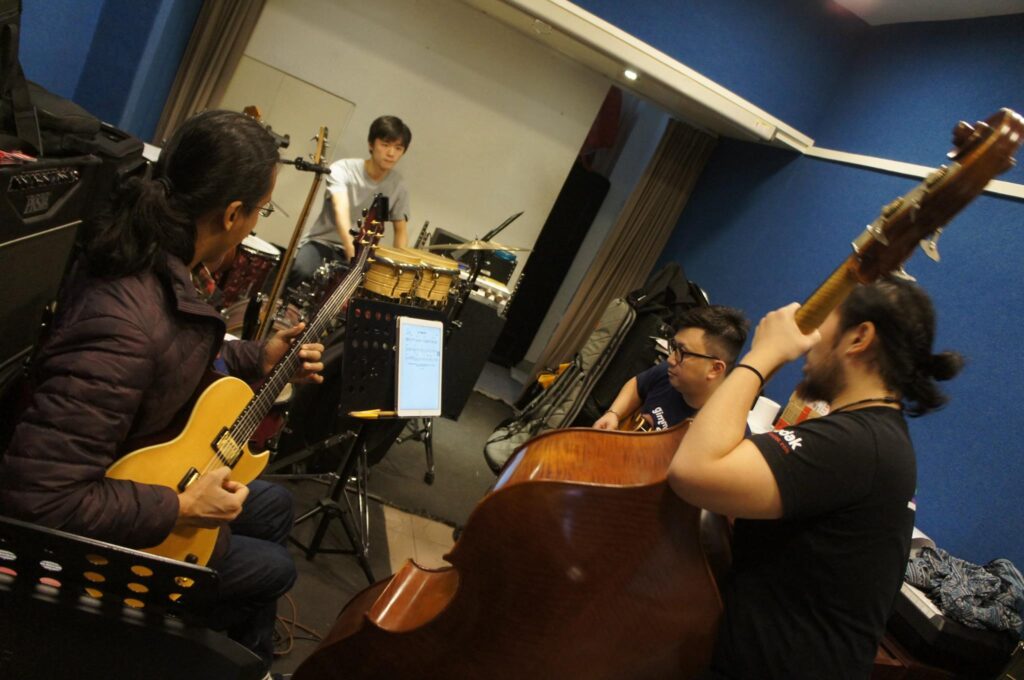
Some may question how reading can directly impact a musician’s creativity. I believe the key lies in reflecting on what you read and applying it to your own context. It’s not just about reading passively but actively engaging with the material.
Writing your thoughts and opinions, as well as deeply reflecting on the ideas discussed in the book, helps you internalize and integrate the knowledge into your playing or artistic designs. The book serves as a device, and you are the one who breathes life into the concepts through your own interpretation and application.
The Ever-Changing Experience of Reading:
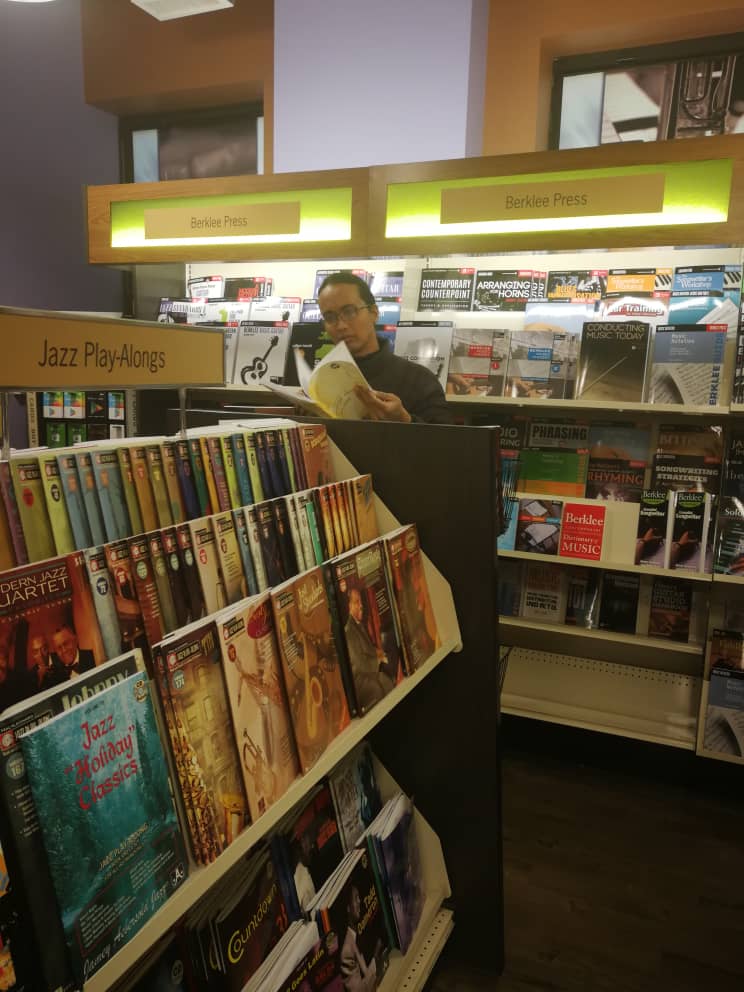
Reading is a lifelong journey that evolves alongside you. As you grow and gain new experiences, the same book can offer different lessons at various stages of your life. The text remains constant, but you, as a person, transform over time.
Revisiting a book you read years ago can provide fresh insights and perspectives. It’s essential to embrace this ever-changing experience and seek out books that align with your current stage in life.
In conclusion, reading is a powerful tool for musicians, offering a wealth of knowledge, inspiration, and networking opportunities. By reading books that resonate with you and engaging in thoughtful reflection, you can enhance your creativity and broaden your musical horizons. Read, not because I told you or because you think you have to but as an act of rebellion against the norm of consuming attention-shortening content and mass published programming.
===
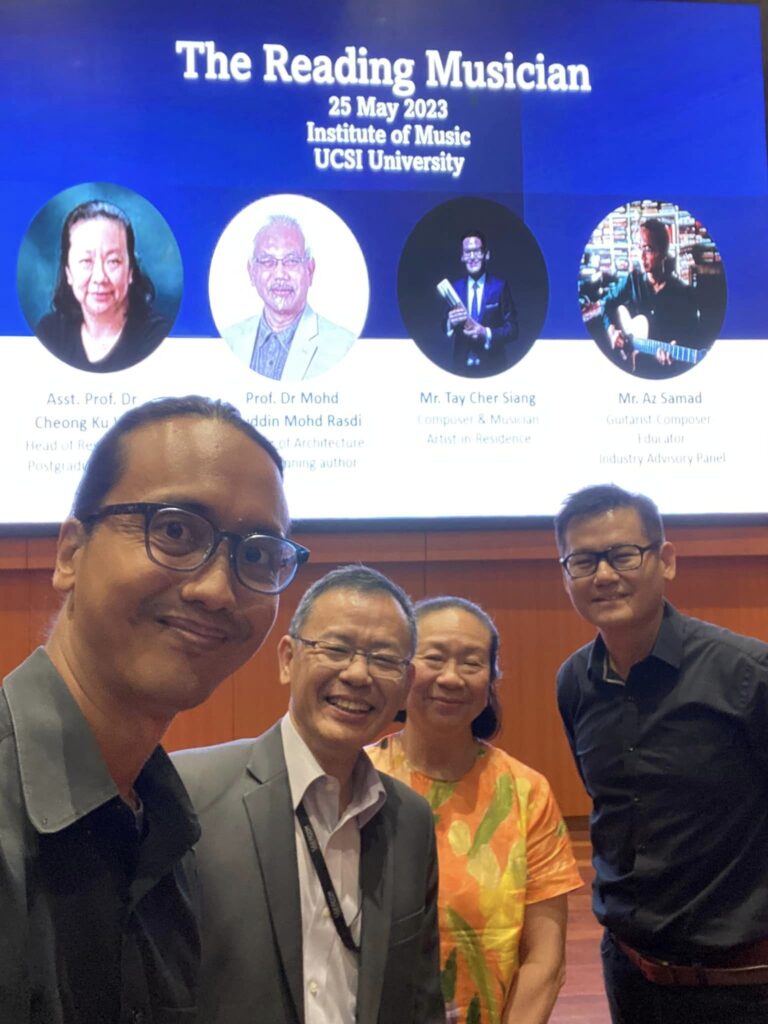
This piece is written inspired and based around my notes for the panel discussion “The Reading Musician” at at Institute of Music, UCSI University.
“The Reading Musician” was as a session alongside Mr. Tay Cher Siang and Assistant Professor Dr. Cheong Ku Wing moderated by Prof. Dr. P’ng Tean Hwa, director of the Institute of Music at UCSI University.
Thank you UCSI for having me as a part of this!
So happy to get a chance to catch up with Justin Lim Fang Yee, Tay Cher Siang, Gan HW and meet Rob Mills today. Special thanks to Raw Chef Yin for the wrap!
If you enjoyed this post, I encourage you to explore my other articles and posts, which offer even more guitar and music tips.
You might enjoy reading:
Unveiling the “Secret Sauce” in Music Arrangement: My Experience at Mac Chew’s Clinic
10 Things I Learned From the Ichika Nito Guitar Clinic at Bentley Music Auditorium, Mutiara Damansara, Petaling Jaya, Malaysia
Event Review: Laney Presents Lari Basilio Asia Clinic Tour at Bentley Music Auditorium, Mutiara Damansara, Petaling Jaya, Malaysia
7 Things I Learned From Mateus Asato
and this series:
[WORKSHOPS: LEARNING FROM THE MASTERS]
10 Things I Learned From The Mateus Asato Singapore Guitar Clinic
10 Things I Learned From The Julian Lage TIJC 2017 Workshop
10 Things I Learned From The Jack Thammarat Kuala Lumpur Workshop
10 Things I Learned From The Guthrie Govan Kuala Lumpur Workshop
And for jazzers… interested to check out what I learned from the Thailand International Jazz Camp 2017 (12 hours of workshops & 2 hours of jam sessions), check out the 3,100+ word blog post here: Thailand International Jazz Camp 2017 with Shai Maestro/Desmond White Group and Thailand International Jazz Camp 2018 with Will Vinson Quintet.
For more content like this, follow me on social media here:
https://instagram.com/azsamad
https://www.facebook.com/azsamadmusic
https://youtube.com/azsamad
https://twitter.com/azsamad
Dan kepada yang boleh faham BM (if you can read Malay), subscribe to my daily e-newsletter, Surat Muzik (free) here: http://suratmuzik.com/
